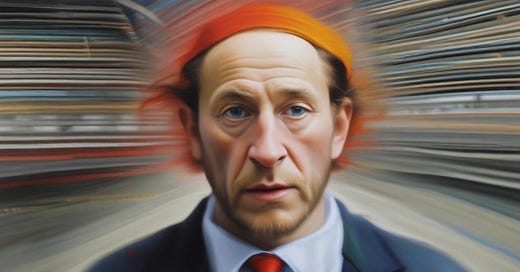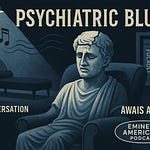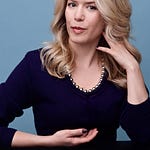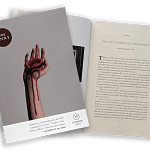In his recent essay in Tablet, “Why the Western Rebellion Against the Jews Produces Bad Art and Bad Politics,” Blake Smith writes about the Bulgarian-French-American critic and philosopher Julia Kristeva, and in particular her fruitful and fascinating analyses of the viciously anti-Semitic French novelist Louis-Ferdinand Céline.
For Kristeva, Céline is, among many other things, a great example of how anti-Semitism is embedded in western culture in a way that precedes even the very early Christian antipathy to Jews for their role in rejecting Jesus. We are anti-Semitic, in the West, because our very psyches were formed, before Jesus was even a gleam in God’s eye, when the rival but intimately bound figures of the Jewish patriarch and the Jewish prophet set the archetypal boundaries within which we would live and develop.
When we rebel, as we must, it is against one or the other of these figures. Blake writes:
Western fathers, Kristeva insisted, are Jewish. Even Westerners who are neither Jewish nor religious derive from the heritage of the Bible their profoundest and most intimate understanding not only of God—a loving, punishing, powerful, yet often apparently absent or vindictive father—but of everything associated with the “paternal function.” Our sense of political authority, of social norms, of our own fathers and our own fatherhood, is suffused with biblical legacies. A vision of a bearded older man, compounded of God and the patriarchs with whom God spoke, hangs like a superimposed image before every one of our apparently secular leaders, judges, and dads. Whenever we rebel against their authority, and seek to extirpate from ourselves and our culture that authority’s deepest, most hidden foundations, we therefore may easily find ourselves locked no longer in struggle with real, empirical fathers and powers (who may well need to be overcome) but with the abstract, symbolic, Jewish “paternal function” which, never exhaustively embodied by anything, may nevertheless be figured, as a scapegoat, by Jews.
But the Bible contains both Law and Prophets: a power that compels obedience to rules and measures all men’s worth by them, and a power that compels some men to strangely singularize themselves through antinomian acts of outrageous transgression—powers both called God. The prophets marry whores, lay for months unmoving in bizarre positions, eat disgusting bread, report dreams and sightings in which respectable authorities are laid low by vicious pagan foreigners. Here a relation to God seems not to assure the continuity of patriarchal tradition, of sons becoming fathers through adherence to rules and roles, but rather to endanger everything that might make one socially recognizable as a decent person. The prophets, unsurprisingly, are often reluctant, pleading with God that they are not well-suited for such a task, or simply fleeing it.
The traditions of the West, Kristeva posited, since they derive in large measure from the Bible, turn on its central tension between, on the one hand, seeing God as granter of the Law, guarantor of the social order and our place with in it, and, on the other, hearing God’s summons to undo ourself and the world that they might be remade. To hold on rightly both to the “very risky right to be different” as revealed by the Prophets through their bewilderingly personal access to the divine, and “the Law” as given publicly, plainly, to everyone, once and for all, is a difficult venture, and perhaps one bound to teeter endlessly between stifling conformist legalism and reckless individualist fanaticism.
In addition to Blake’s essay on Kristeva on Céline, we also talk about lots of other stuff, including Blake’s efforts to launch a magazine about gay male life and culture, why I (somewhat surprisingly) don’t like Tom Wolfe; and Blake’s very loving parents who didn’t exactly come through when he came out.
What thematically unifies the episode, I think, is the shared concern that Blake and I have with how we can reverse the polarity of our current political and cultural equilibrium, in which culture is boring and limp and predictable and politics are intense and transgressive and surprising. Without quite signing on to Kristeva’s vision of western civilization being premised on the tension between the Jewish father and the Jewish rebel, we find it a useful frame with which to think. Hope you enjoy.














Share this post